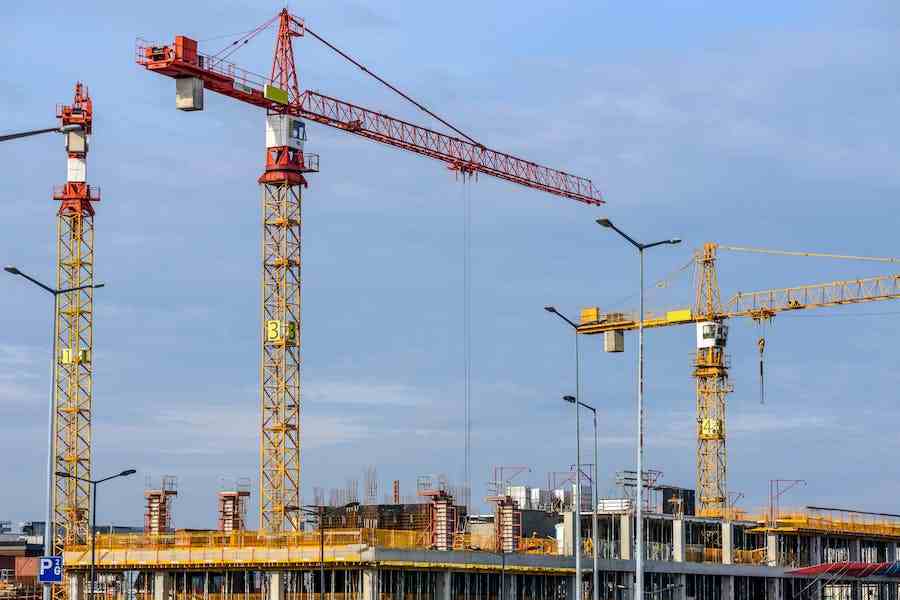
Many construction projects require heavy equipment to complete. Renting this type of equipment means builders won’t need to make major capital investments. For those working with tight budgets, renting equipment versus buying can help control costs. These tips for renting heavy equipment will help keep costs down.
Assess Your Needs
Thoroughly assess your needs beforehand. Define the scope of your project and the specific tasks required to determine what type of equipment is necessary. Next, consider details like the terrain or soil conditions in the working area, as not all heavy construction equipment rentals perform the same in all environments. Also, think about space constraints if working in a confined area. Measuring accessibility is key.
Additionally, realistically estimate how many hours or days you’ll need the rental to avoid paying for unnecessary time. Investigate the costs, as some companies charge delivery and pickup fees, insurance, damage waivers, and more. Understanding the full rental rates will prevent sticker shock later. Don’t forget supporting materials like fuel, attachments, or operators either. With good planning, you can rent ideal equipment tailored to your job specifications so that projects run efficiently. Doing homework ahead of time prevents both undersupplying and overpaying when renting heavy machinery.
Research Rental Companies
Research potential rental providers beforehand. Renting from an unreliable company can lead to costly problems. By researching rental providers’ safety records, inspection procedures, employee training protocols, and overall reputation, you can avoid potentially disastrous situations down the line. Check if prospective companies are licensed, bonded, and insured. Read online customer reviews detailing professionalism, timeliness, equipment quality, and past incidents. Request references from other local construction firms and developers that have used their rentals before.
Taking the time to vet multiple heavy equipment rental companies on factors like service quality, responsiveness, availability, rental rates, and damage policies will pay dividends through more seamless operations and peace of mind that your worksite and operators will be safe. The last thing any project needs is a site shutdown or OSHA violation due to a preventable equipment failure from an unreliable rental source.
Consider Used Equipment
Some rental companies offer used equipment at lower rental rates. While these machines may have more wear and tear and lack certain features, they can still provide adequate functionality. Just ensure the company fully inspected and certified the equipment’s safety. Used machines have higher chances of breaking down, so ask about the company’s maintenance record and policies should repairs become necessary.
Inquire About Special Rates
When renting for an extended period, always inquire about weekly or monthly rates, which are usually substantially discounted compared to the standard daily rate. Companies may also offer special weekend or off-peak seasonal rates that could slash your costs, so be sure to ask. Also, see if there are any first-time customer discounts or loyal customer reward programs with lower rates. Consider bundling all your rentals into one contract for a bulk rate.
Don’t forget to negotiate. Rental rates are not always firm, especially for lengthy rentals or when business is slower. The bottom line is that you should never assume posted rental rates are fixed.
Protect Yourself With Insurance
Purchase insurance to protect yourself if something happens to the equipment. This insurance also covers liabilities if someone is injured while using the rented equipment on your work site. Some policies also cover business interruption costs if the equipment breakdown causes project delays. Having proper insurance simplifies accident claims and provides peace of mind that you won’t be financially devastated by an incident involving rented equipment under your supervision. The reasonable insurance premium costs are well worth avoiding personal liability for the value of the rented equipment. Protecting yourself with rental equipment insurance should be a routine part of contracting any heavy machines.
Fuel Policies Matter
It is important to understand the fuel policy when renting any heavy machinery or equipment that requires gasoline or diesel to operate. For example, you may need to refill the tank before returning the equipment. Not topping off the tank beforehand can mean expensive refueling fees.
Additionally, some companies may put a hold on your credit card for the estimated fuel amount at the start of the rental and may take days after the rental is closed out to reverse any excess charges if you returned the equipment full of gas. Understanding these kinds of policies ahead of time allows you to properly budget fuel costs for your project. Asking questions about fuel policies also ensures there are no surprises or confusion about who is responsible for refueling or any associated charges. Taking the time to be informed upfront prevents funding issues later on that could delay a project’s timeline. Reviewing this rental paperwork detail is a simple step that can save significant hassles when renting heavy equipment.
Lean On Subcontractors
When starting a construction project, you have an important decision to make regarding sourcing heavy machinery and equipment. Should you rent it directly or hire subcontractors who already own what’s needed? There are good reasons to at least consider subcontractors first.
For one, subcontractors have the specialty equipment and years of expertise to operate it efficiently and safely. Rather than taking time to research equipment rentals, rules for transporting them, liability considerations, and more, subcontractors handle all those details. This allows you to focus on high-level project management rather than equipment logistics.
Additionally, owning and maintaining expensive assets like excavators and bulldozers carries high overhead for subcontractors. By hiring them, you take advantage of their economies of scale without the same financial risk or storage burdens. The nature of contracting also makes labor costs and timelines more predictable compared to figuring out fair rental terms.
The exception is smaller or highly standardized jobs where rental arrangements may suffice. Still, for most medium or industrial projects, exploring seasoned subcontractors who supply their machinery is wise before opting for pure equipment rental. Their expertise and asset efficiency provide value.
Start Small If Necessary
Working with tight budgets may necessitate starting smaller than envisioned. If that backhoe rental doesn’t fit your budget presently, consider holding off, manual digging instead, and saving up until you can afford it. Start with basic equipment then add on. Building in phases while adapting to budget constraints can become necessary for cost-conscious builders and renovators. Think creatively about equipment alternatives that align with present budgets.
From excavators to forklifts, heavy machinery often plays an integral role in construction projects. While purchasing equipment may not suit small contractors, renting provides accessible and affordable solutions. Following the right approach allows builders, even those with limited budgets, to access the vital equipment their projects require. Carefully assessing needs, researching options, negotiating rates, and securing insurance protects budgets without sacrificing essential tools to complete quality builds.








